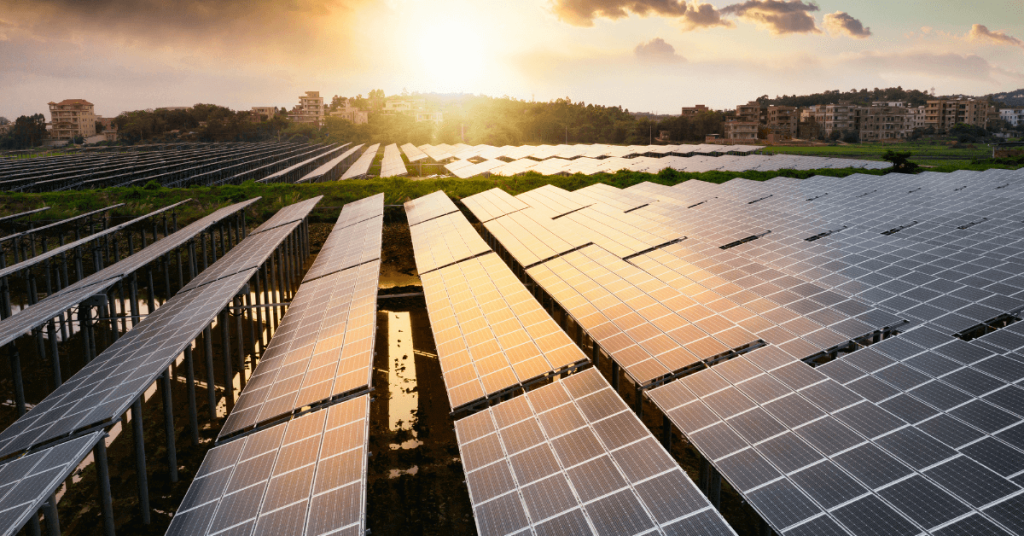Everything you need to know for a compliant solar system
Because loadshedding stages are constantly changing, the City is encouraging the installation of private Small Scale Embedded Generation (SSEG) systems. In order to ensure residents comply with current regulations, the city has provided solar installation guidelines for a solar photovoltaic (PV) system.
Earlier this year, the City of Cape Town announced it would start paying residents for their surplus electricity – electricity generated from solar panels that could be fed back into the city’s grid.
The City of Cape Town is also currently the only metro in South Africa actively protecting its citizens from the advanced stages of loadshedding being implemented by Eskom.
Keep reading for the City of Cape Town’s ‘going solar’ checklist

Reliable Installation Service Provider
The city advises that before deciding on a PV installer, it is recommended that the installer be accredited and have substantial prior experience. A qualified installer, should be the designer, supplier and installer of the solar system. And finally, to ensure credibility, they should be registered as an accredited service under a third party quality assurance programme:
- PV Green Card: A South African Photovoltaic Industry Association (SAPVIA) endorsed programme, ensuring quality and safety installations.
- P4 Platform quality assurance programme: An independent system, scoring contractors on knowledge, best practice and the promotion of good practice.
- Proof of electrical Certificates of Compliance (CoCs) and previous City of Cape Town authorised projects are also recommended.
Quality Qualifications
The city’s recommendations include hiring qualified staff and subcontractors to design and install systems. The system needs to be designed and installed by a DoLE-certified electrical contractor. No system should exceed 1000 volts DC in terms of NRS 097-2-1:2017 Ed2.1.
By using the services of a registered electrician, you can ensure that your system’s installation complies with national wiring codes. In the case of a grid-tied system, it is required that it be signed off by an Engineering Council of South Africa (ECSA) registered professional.
Finally, membership in SAPVIA and ECB demonstrates the service provider’s commitment to remaining compliant with legislative requirements, industry standards, and the broader PV electrical sector.
Before approving the design and purchasing a system
Become More Energy Efficient
Reducing energy consumption before purchasing a PV system will save money in the long term. Consider installing an efficient water heater, installing efficient lighting, and switching to gas for cooking and heating.
No Short Cuts
All generation facilities and equipment must be registered with the City. Regardless of the type of solar PV installation, the City must grant written permission.
Structural Assessment
Obtain a structural assessment of the roof which will hold the load of the PV panels, This can be done by a structural engineer.
No Plans Required
No building plans need to be submitted to the city before installation of the PV panels, unless they are raised 1.5m above a rooftop, or 2.1m from the natural ground level if ground mounted.
Buy the Correct Inverter
Ensure the inverter is approved by the City, and if a hybrid PV system is installed, make sure your batteries are stored in a well-ventilated, dry room in accordance with the Occupational Health and Safety Act.
PV Panel Standards
Check that the PV panels being installed have a Certificate of Compliance with the SANS/IEC standards:
- SANS/IEC 61215: 2015 – Crystalline silicon terrestrial PV modules
- SANS/IEC 61646: 2016 – Thin film terrestrial PV modules
SABS standards are equivalent to IEC international standards and are a good indication of panel quality.

Installation
While it is important to make sure you have everything checked off the list before the installation of the PV system, it is equally important to make sure that processes are followed during installation. As the City points out, ensuring the compliance and qualification of the service provider will guarantee the system’s longevity and ultimately prevent it from becoming an orphan system.
During the installation process, make the following checks:
- All rooftop solar PV system installations require permission from the City.
- The electrician in charge of signing electrical Certificates of Compliance performs or supervises work efficiently.
- The PV installer should demonstrate the placement of the panels before the final installation. This allows for the adequate cleaning of the panels in due time as well as access to the roof for the Fire Department.
- Ensure that the service provider is using specialised CD current circuit breakers for your PV panels.
- All service providers and contractors should be working in accordance with national health and safety codes.
Post-Installation
After your PV system has been properly installed, it’s essential that you maintain compliance.
- All PV systems installed in the City of Cape Town grid must be certified.
- The Department of Labour and Employment-registered electrician who performs the installation will supply a Certificate of Compliance once the required tests and checks have been completed. Residential installations may be certified by an ECSA-registered professional technician, and in the case of commercial and industrial installations, the system must be certified as above or by a ECSA-registered professional engineer, certified engineer, or technologist.
- Obtain a quality assurance certificate i.e. PV GreenCard
- Check that the PV installation has not caused roof leaks
- Be sure to obtain all warranties and guarantees available for the PV system and be sure to keep all operations and maintenance manuals in a safe place.
- Be satisfied with the quality of work. If not, request an independent inspection of the installation.
The City of Cape Town has recognised that after 51 days of loadshedding in South Africa for 2023, residents are increasingly seeking out alternative energy sources. At present, solar is the most reliable source.
As an accredited PV system service provider, InPower is aligned with the City’s goals, providing excellence for more than 38 years.


